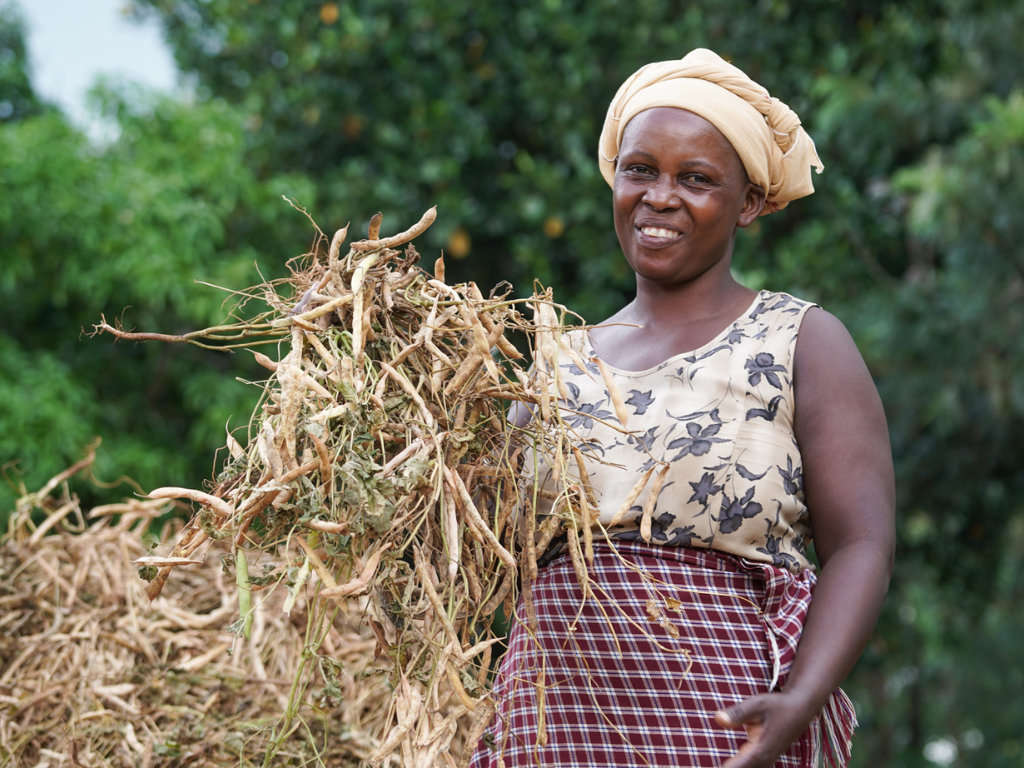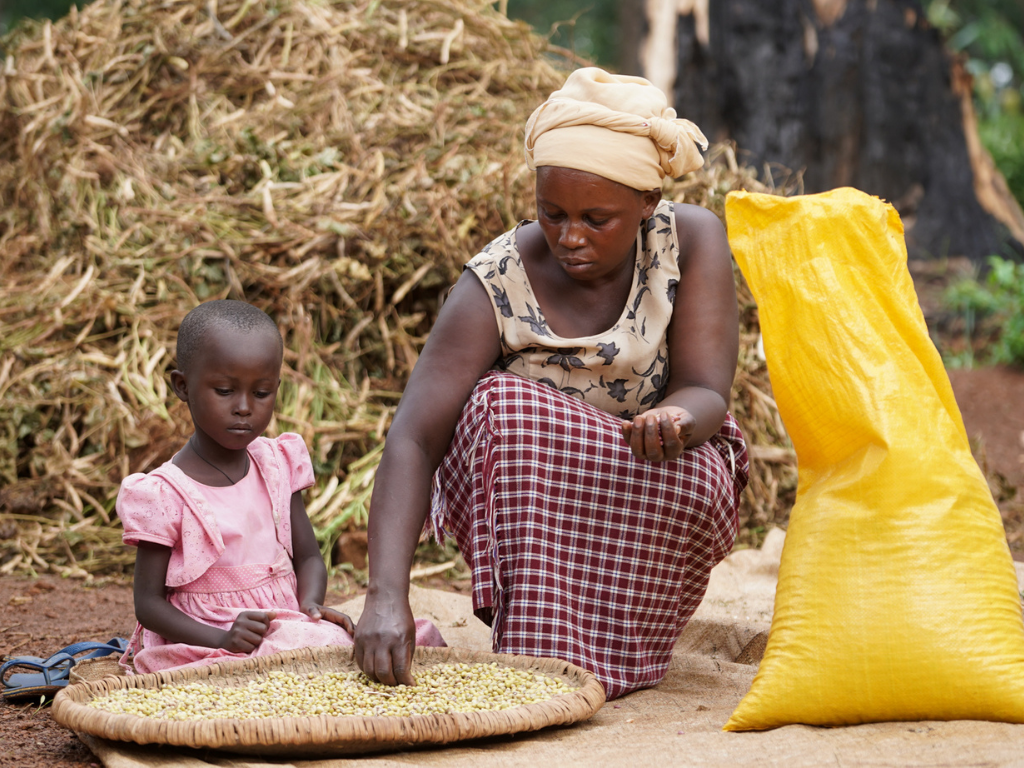A Better World for Her

In a small village called Kanyamunyu, located in Western Uganda with only 707 inhabitants, lives Justine, a 34-year-old mother of two. The households in her village made less than $1 a day for their entire families. Living in ultra-poverty and experiencing dire food insecurity, Justine also faced significant socio-economic barriers as a woman. Even though she worked hard farming her garden, she could not reap the benefits of her labour while stuck in a cycle of abuse in her marriage. Today, as a single mother, Justine has taken charge of her growth and income and is tearing down gender barriers to create a better world for herself and her children.
“Women in my community have no equal rights to men. Many men don’t want to work in the gardens; they make their women do the work and then spend the harvest money on whatever they want,” Justine shares. “ I couldn’t stay like that anymore — my children and I deserved a better life..”
After the separation in 2017, Justine and her children moved in with her mother and started farming in their family garden, but they were faced with several setbacks. Pests were attacking her crops, weakening her plants and threatening her family’s food supply and income.

When Raising The Village partnered with her community, Justine and other women of her village were hopeful and excited to explore the opportunity. With support from the Government of Canada through Global Affairs Canada (GAC), Raising The Village rolled out the “From Last Mile Into Possibilities (FLIP)” in Justine’s village. This project prioritized women and youth-headed households and aimed to ensure that communities have access to water, health, and food security. Additionally, participants received training and support on diverse income-generating activities and financial inclusion initiatives introduced as part of the program.
Justine dedicated her time and efforts to learning Good Agronomic Practices (GAP) and utilizing the improved seeds she received. It didn’t take long for her to witness the results of applying the knowledge she gained from the program’s several agricultural training sessions and the staff’s ongoing technical support. In addition to agricultural practices, community members in her village participated in Raising The Village’s Healthy Households Training (HHT). Over several training sessions, they learned about financial literacy and saving, community leadership, gender equity and, most importantly, the importance of women’s participation in economic activities and decision-making in their households and communities.
With Justine’s great results in adopting new farming techniques, she became a role model in her community. With sensitization on the importance of equitable gender roles, there was an increased willingness of community members to elect gender-equitable project committees. Justine was elected as Chairperson of the Agriculture Committee in her village.
“Decision-making has always been dictated by the men in this community. Whenever women tried to speak up and make their decisions, violence erupted,” Justine states. “But now, I’ve felt so empowered since being elected a chairperson of agriculture in my village! I have learned so much — like how to work with different people with different behaviours,” she says, looking proud of her achievement.
With a gender-transformative approach at the center of Raising The Village’s program methodology, it is ensured that amongst the leadership positions created at the community level for project sustainability, there is at least 40% representation of women, with 20% representation of youth, including young women. Community leaders receive training and support throughout the 24-month program from Raising The Village staff. This project was launched in July 2022, and Kanyamunyu village already has more than 55% representation of adult women (31+ years) and 11% representation of young women (18 to 30 years) in leadership positions. Justine’s confidence in herself is growing, as is her income with diversified sources. With her children in school, she is eager to continue supporting her community as a leader and growing her income to ensure a better, more equitable future.
“With the knowledge I have now; I am proud to be a farmer. I have started a small business in town that sells soap, sodas and other household groceries. I am a woman, and I can support my family.” Justine concludes.
Be part of our journey. Support last-mile communities by supporting Raising The Village.
Let’s Stay Connected

